How flexible funding is saving lives
Across the globe, children are facing a historic confluence of crises – from conflict and displacement to infectious disease outbreaks and soaring rates of malnutrition. Meanwhile, climate change is compounding the severity of these crises and unleashing new ones.
In a volatile world, with more children in need than ever and resources increasingly stretched, it is critical that UNICEF and partners have the right support. Decisive and timely humanitarian action saves children’s lives, while also sowing the seeds of future development.
Global Humanitarian Thematic Funding is a highly flexible form of funding that allows donors to support UNICEF as it responds rapidly and strategically to immediate needs in humanitarian crises.
Through Global Humanitarian Thematic Funding (GHTF), UNICEF is able to deliver timely assistance to vulnerable children more quickly and effectively than is possible through earmarked funding. GHTF also allows UNICEF to decide where best to allocate the funding, which is especially important for children living in the most underfunded regions. Such flexibility is critical during responses to sudden-onset emergencies and is particularly important for protracted emergencies, where needs are chronic yet urgent, but when much of the world’s attention may be elsewhere.
Here are six places where flexible funding has already saved lives:
Afghanistan
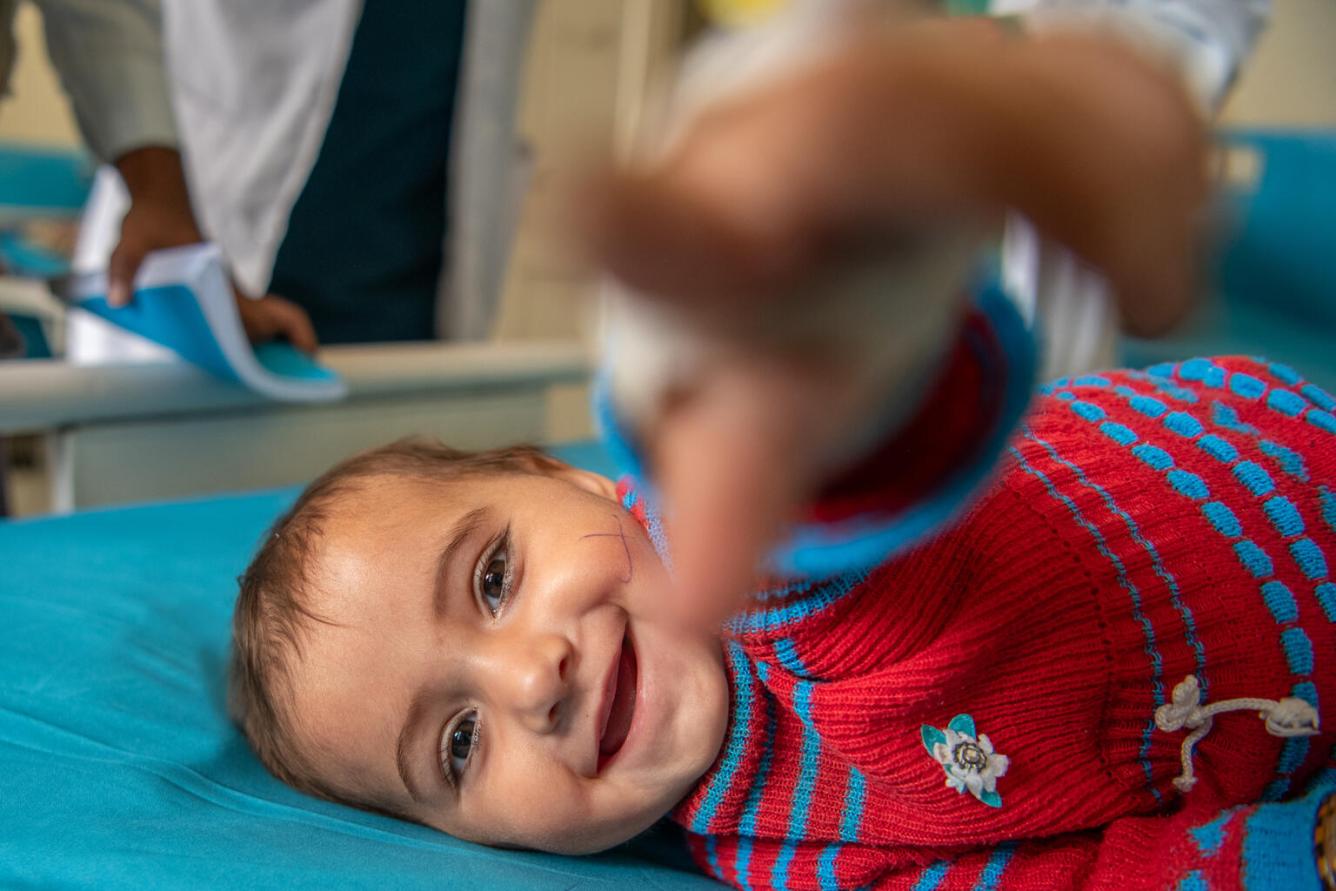
More than 29 million people in Afghanistan, including nearly 16 million children, cannot meet their basic needs due to cascading emergencies that have shifted from conflict to political crisis, economic shock, drought and a gender crisis.
The allocation of GHTF has been crucial in enabling UNICEF to preposition life-saving supplies such as hygiene kits and water purification tablets in high-risk districts, and to train water, sanitation and hygiene (WASH) partners on acute watery diarrhoea preparedness and response. With recent support from GHTF, UNICEF has also reached more than 90,000 people through social mobilization and mass media campaigns focusing on the prevention of acute watery diarrhoea and cholera.
The best thing about this type of funding is its flexibility, which helps UNICEF tailor its response and assistance based on the needs of the people, especially of the most vulnerable groups, namely children and women.
Ariana Achakzai, Emergency Specialist, UNICEF Afghanistan
Haiti
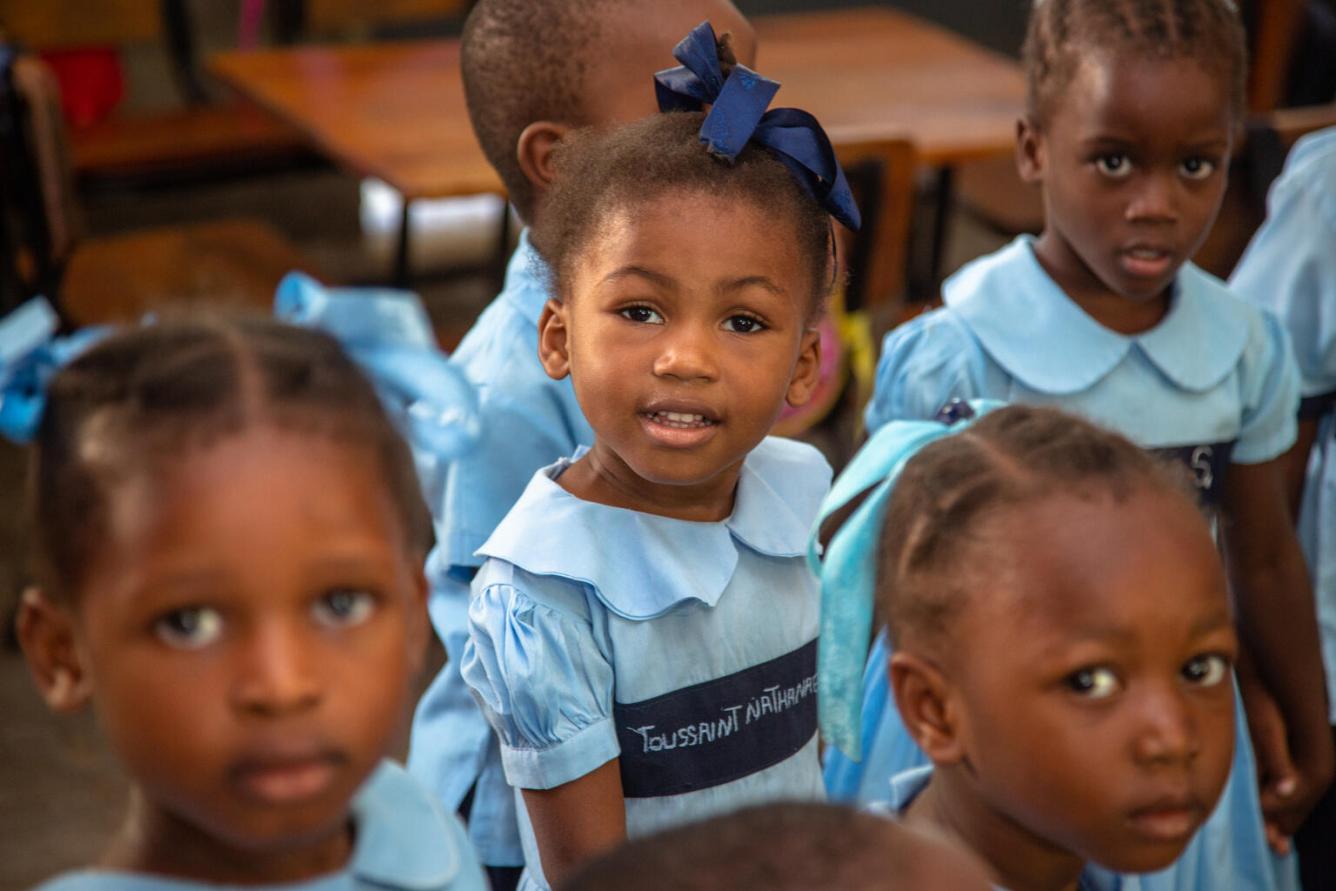
A deadly combination of political turmoil, an upsurge in armed violence, malnutrition and skyrocketing inflation have left more people in Haiti in need than ever before. More than 5 million people – close to half of the population – are in desperate need of greater security and access to basic essential services.
Flexible funds are especially important in emergencies because they allow UNICEF to react when a situation suddenly changes. In Haiti, these funds are allowing UNICEF to continue meeting WASH needs as part of the cholera response, including by supporting the operating costs of government entities responsible for the overall coordination of a “WASH shield” strategy that includes the chlorination of drinking water through municipal networks and at public collection points.
GHTF has also enabled UNICEF to provide psychosocial support to children and families moving along the border. For education, UNICEF was able to support around 26,000 children to access classrooms, including by purchasing and transportating construction materials for the ongoing rehabilitation and building of schools affected by the 2021 earthquake.
"In terms of education, we are grateful because the funds have allowed us to respond to urgent requests from the government, to create a contingency plan and to continue to provide education for children affected by the current crisis and natural disasters."
Inge Vervloesem, Chief of Education, UNICEF Haiti
Türkiye
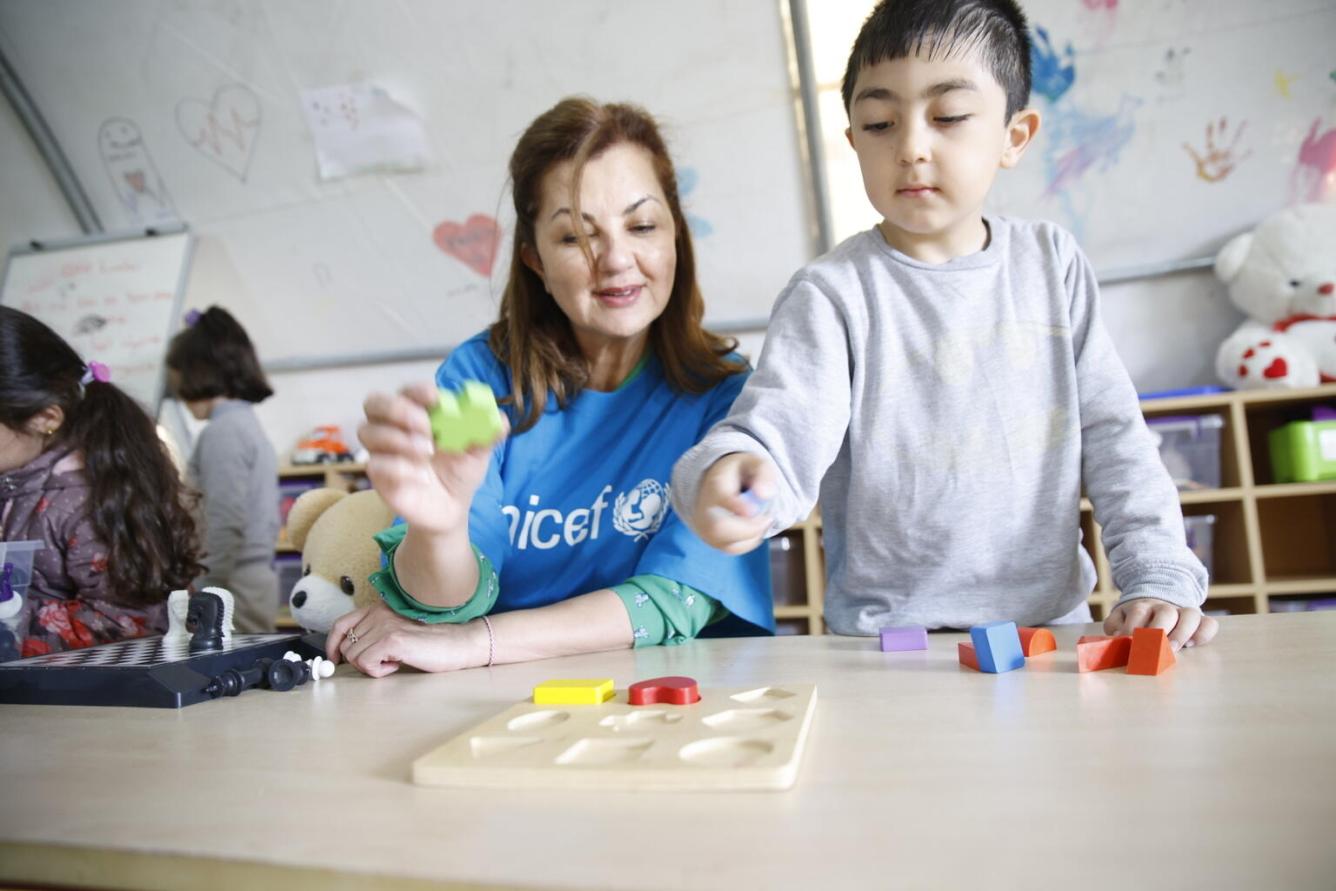
When two massive earthquakes and numerous aftershocks hit south-east Türkiye and Syria in February 2023, millions of children and their families were left in desperate need of assistance. The earthquakes pushed many families to the brink, leaving children without access to essential services including safe water, education and medical care.
By the start of August, more than 180,000 people were still living in informal sites or makeshift shelters with limited or no access to services in the four Turkish provinces hardest hit by the earthquake: Hatay, Kahramanmaras, Adiyaman and Malatya. Across these provinces, another around 340,000 individuals were living in tents or containers, although these numbers continue to fluctuate.
Timely flexible funding allowed the UNICEF Türkiye office to quickly deploy and scale up its response in the aftermath of earthquake, especially with interventions like establishing support hubs that have reached more than 500,000 people with psychosocial support.
This funding allowed us and partners to immediately be on the ground providing essential services and supplies, and later to be able to quickly adapt the response to evolving needs and according to feedback we received from affected communities.
Paolo Marchi, Representative a.i., UNICEF Türkiye
Papua New Guinea
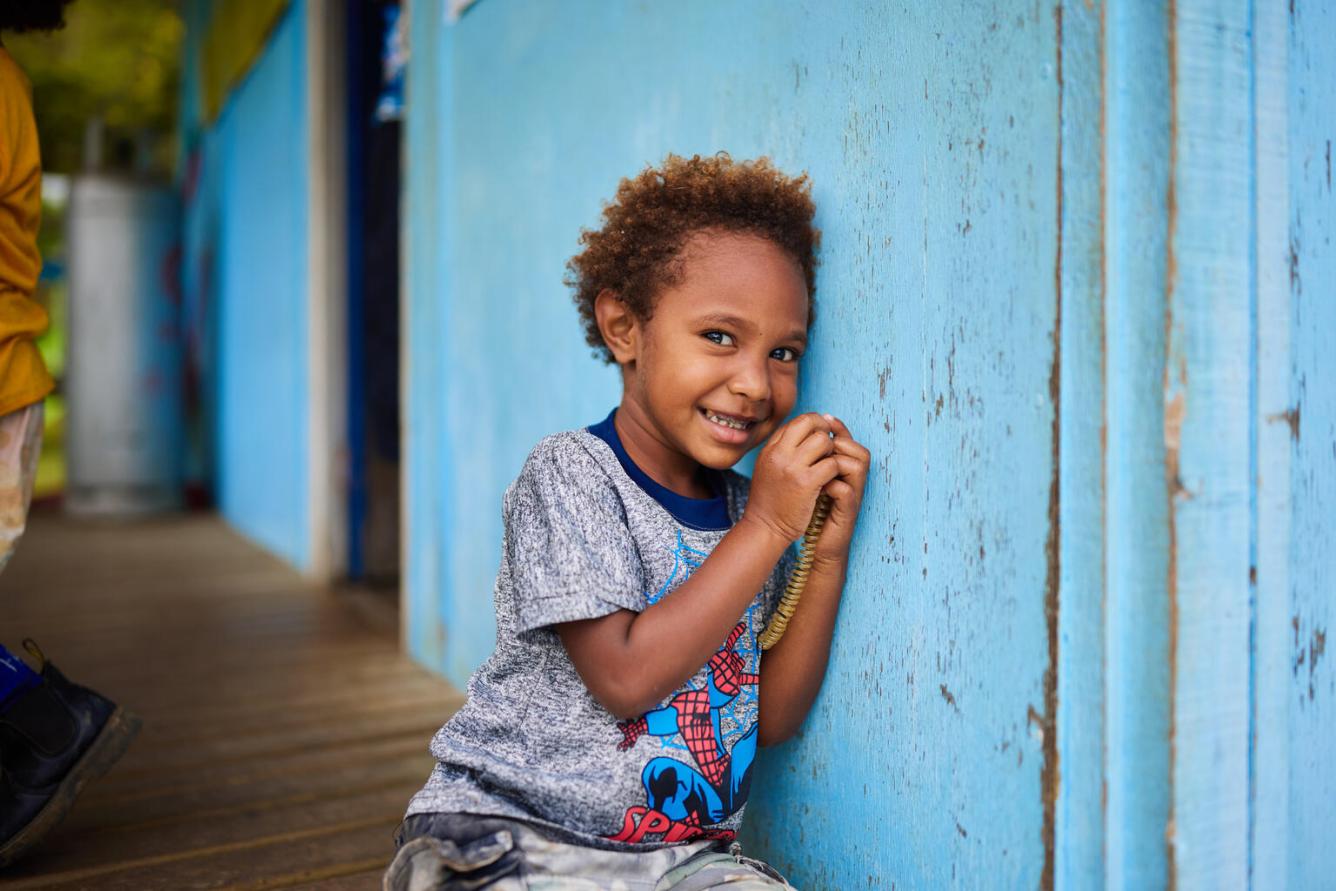
Despite considerable economic growth over the past decade, significant challenges remain for Papua New Guinea’s children and their families. The country’s health system is fragile, with hundreds of thousands of children still missing out on life-saving vaccines, while malnutrition rates are still unacceptably high - an ongoing underlying factor for illness and deaths, particularly among children under five years old. Providing even basic health and nutrition services to some parts of the country, including disaster-prone areas such as the Highlands Region, can be minimal or absent altogether.
These challenges were compounded by election related violence in 2022, which disrupted already vulnerable public health systems in the Highlands region, displaced health care workers and forced the closure of health facilities.
GHTF has helped UNICEF reach vulnerable children, families and communities in a timely manner by facilitating the quick procurement of nutrition supplies and equipment, including micronutrient powders and measuring tapes to use both during emergencies and for ongoing programmes.
Flexible funding allowed UNICEF to support the distribution of first aid, midwifery kits, and essential medicines to affected populations through government and church run health facilities. It also helped us support integrated health service delivery through outreach patrols.
Dr. Satish Gupta, Chief Health Programme, UNICEF Papua New Guinea
Pakistan
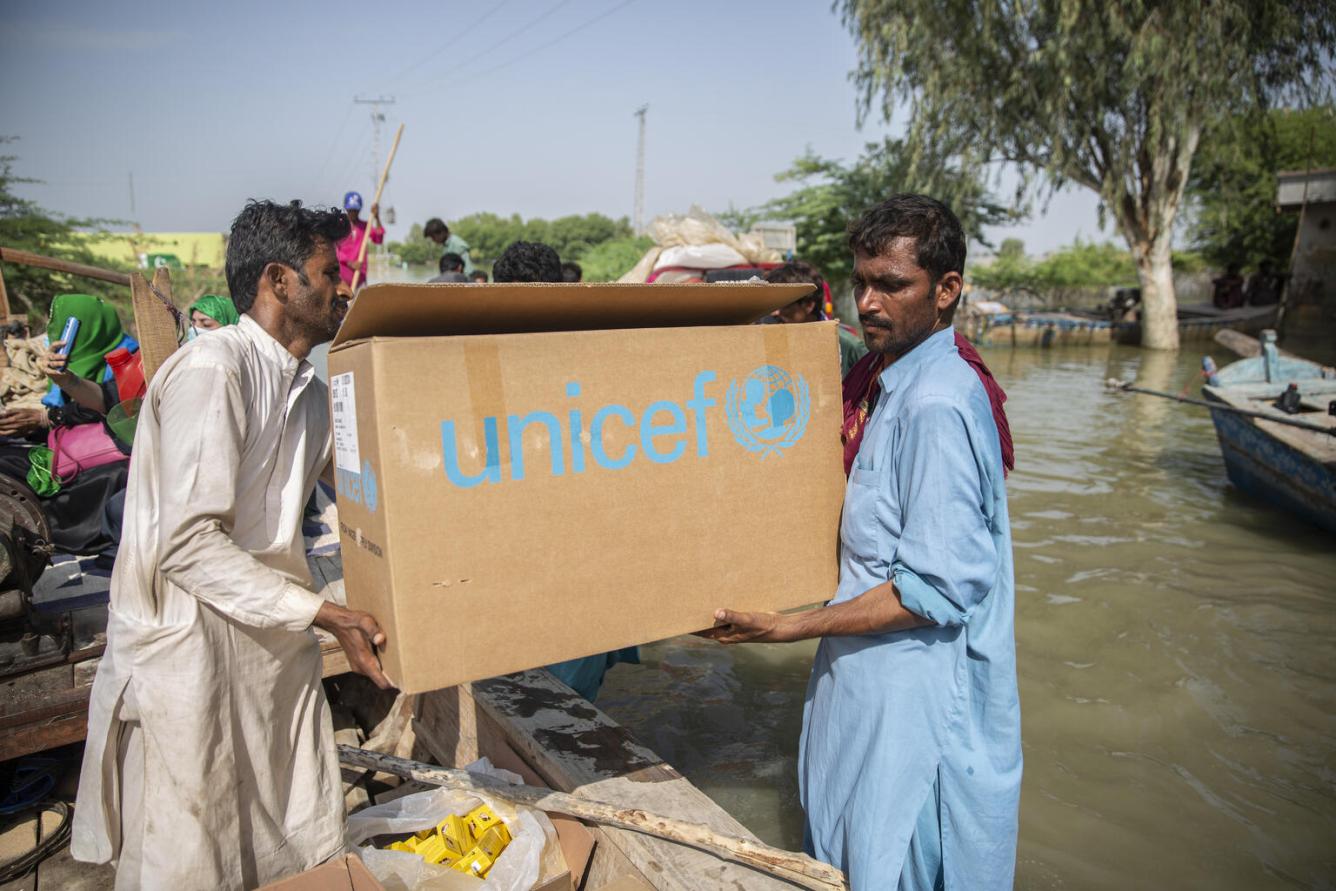
When devastating floods ravaged Pakistan in August 2022, millions of children were left in need humanitarian assistance and access to essential services.
Many of the hardest-hit districts were already among the most vulnerable in the country, where children suffered from high malnutrition, poor access to water and sanitation and where school enrollment rates were low. The loss of vital infrastructure – including thousands of schools and public health facilities – deepened these pre-existing inequities, leaving children even more at risk of hunger and disease.
Flexible humanitarian funding was used to support the ongoing response in the worst-affected areas, allowing UNICEF to respond with pre-positioned supplies to meet immediate needs for safe water and health and nutrition services.
Flexible funds allow us to pre-position supplies and set up partnerships, so when we have an emergency, we can act immediately. We can get to the affected area, work with our partners and respond to the most urgent needs of children and families. Without flexible funding, there’s no UNICEF response. It just has to be so immediate, so some decisions need to be made even before the emergency.
Scott Whoolery, Chief of Field Operations and Emergency, UNICEF Pakistan
South Sudan
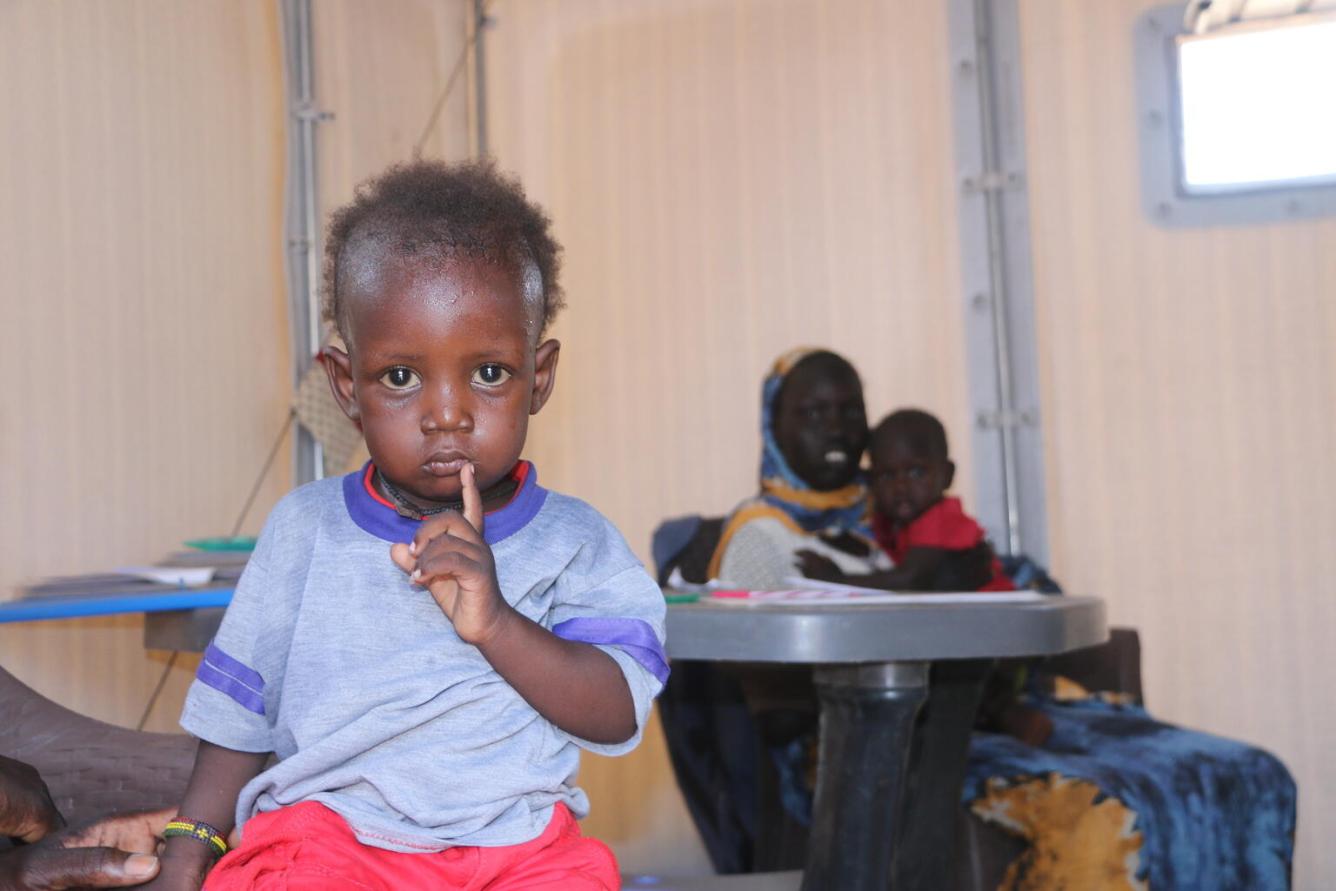
Even before violence erupted in its northern neighbour, South Sudan was experiencing its worst humanitarian crisis since independence in 2011. By late 2022, conflict, unprecedented flooding, disease outbreaks and food and nutrition insecurity compounded the chronic needs of the most vulnerable, especially children. With the start of the crisis in Sudan in April 2023, South Sudan has also been experiencing an influx of returnees and refugees across multiple points of entry along the border between the two countries.
Hundreds of thousands of women and children have arrived in South Sudan. All require some form of immediate assistance. Many are traumatized, malnourished or in need of urgent health services. They’re arriving in communities who are already extremely vulnerable and struggling with multidimensional humanitarian crises.
GHTF has allowed the South Sudan country office to quickly scale up its responses across a number of sectors. For example, it enabled the deployment of social workers and helped to quickly set up child-friendly spaces at remote border locations where more than 130,000 women and children fleeing the conflict in Sudan had arrived by early August.
Flexible humanitarian funding has been crucial in UNICEF’s ability to quickly scale up and deploy personnel and deliver immediate, life-saving services for the thousands of sick and weary women and children in the areas of highest need, when they need it most.
Emma Tuck, Emergency Specialist, UNICEF South Sudan
